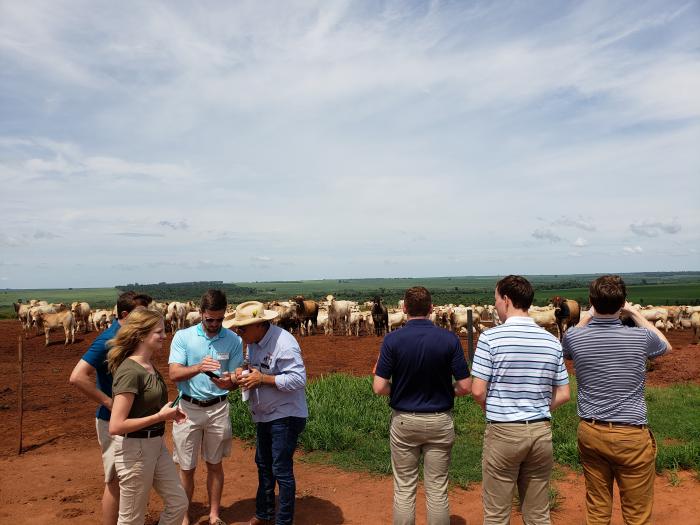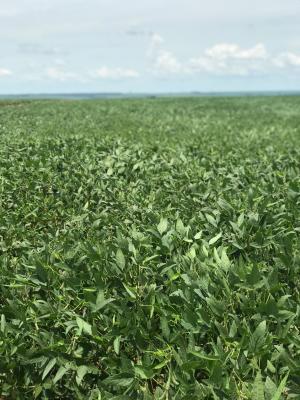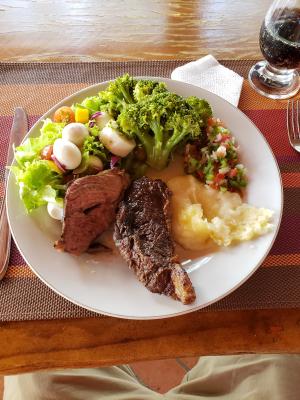A Beefy Wednesday

We started our early morning with a 2-hour bumpy adventure down a dirt road to spend the day at Agropecuaria Jacintho Ranch, a large livestock farm near Naviraí in the state of Mato Grosso do Sul. Three brothers, Fabio, Jose, and Julio Jacintho run the ranch. The group was taken aback by the strong sense of pride after learning that the ranch was passed down by their father and the family will continue to keep the ranch operating in many years to come. The specific ranch we visited is one of the three the family owns. It contains over 9,000 of farmable hectares with 5,000 designated to soybeans and 4,000 designated to cattle pastures. The overwhelming amount of land is maintained by only 40 employees, including nieces and nephews of the brothers.
When we arrived at the guest house, we met the family and listened to them speak a little bit about their livestock and grain operations. The ranch is over 60 years old and was started by the family’s great grandfather who had cut down the very first tree that the ranch was built around. Since then the ranch and the business has grown tremendously, ranch that we visited ~11,000 hectares (~9,000 farmable hectares). This includes land farmed for soybeans and corn, cattle ranches, and protected areas.
After the owner gave us a description of the ranch we were visiting, we got back into our vans and toured their property. We started the driving tour by observing their cattle operation, including their feedlot and two out of the three breeds of cattle they raise. We then went over to their soybean fields where we were able to get a closer look at the crops.
The group then made their way back to the guest area of the ranch to enjoy a delicious traditional Brazilian barbecue lunch. We enjoyed spending more time with the Jacintho family and getting to know them better. We left with full stomachs and a lot of new information.
Some of the interesting things we earned while on the farm:
- They have raised three different breeds of cattle but are transition to the Angus breed because it carries a higher price per head.
- As the farm grows, they are starting to transition out of beef production and into soybean production. Although this year was a drought, the farm normally makes over $500 in profit per hectare.
- The farm has 17,000 acres of protected land. They donated 7,000 to a local municipality and are planning on selling the remaining 10,000 to help other farmers meeting environmental regulations in the area.
Additionally, we learned about a very unique problem that this farm often encounters while raising their cattle. We learned that jaguars are a huge issue on their farm and in the past year, attacked 180 head of cattle. The jaguars live in the protected areas on the farm - the 10,000 acres we mentioned earlier. This is a huge loss for the family, but due to environmental laws in Brazil, they are not allowed to hunt the jaguars.
Overall it was a great day filled with amazing people. They opened up their home to us and welcomed us in with open arms. We were grateful for the opportunity and learned a lot. We all really enjoyed seeing their cattle and visiting the soybean fields and learning more about agriculture in Brazil. This seemed to be a favorite location for a lot of the students on the trip. The family represents the ideal Brazilian farmer, both in character and in practice.

